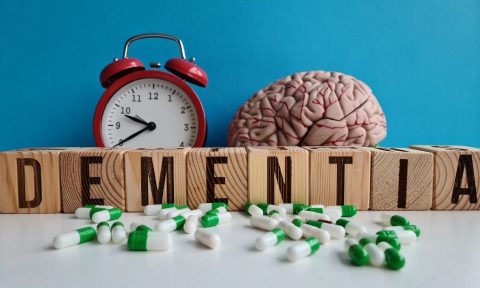Why catching Dementia early matters?
Imagine you’re touching 50 and you’re walking into a room and forgetting why you came in. Or maybe struggling to recall a name that was once at the tip of your tongue. These moments might seem harmless, but they could be early signs of something more serious—dementia. Ivory cognitive health checkup comes as a boon here. The truth is, dementia doesn’t arrive suddenly; it creeps in slowly, often starting with mild cognitive impairment (MCI). By the time we notice, it could be too late to reverse the damage. That’s why catching dementia early is so crucial.
Dementia is a progressive condition that affects memory, thinking, and behaviour. It robs people of their independence, their relationships, and eventually, their sense of self. But what if there was a way to detect the warning signs before they become irreversible? Early detection allows for interventions that can slow down, or even prevent, the progression of dementia. This is where Ivory’s Cognitive Health Checkup comes into play. It’s not just a checkup; it’s a proactive step toward a healthier, more independent future.
Taking this test doesn’t just check a box—it frees your mind. By knowing you’ve done the best you could to protect your brain health, you can live with the confidence that you’re actively safeguarding your future. There’s a peace of mind that comes from understanding where you stand and what you can do to keep your mind sharp as you age.

Real-Life Cases: The Power of Early Detection
Research shows that early intervention can significantly impact cognitive health. A study published in The Lancet found that individuals diagnosed with Mild Cognitive Impairment (MCI) who adopted lifestyle changes—such as cognitive training, improved diet, and regular physical activity—experienced a slower rate of cognitive decline. Some even showed improvements in memory and executive function, suggesting that targeted interventions can help maintain brain function longer.
Programs focused on cognitive and physical exercises, memory strategies, and overall wellness have been linked to better outcomes for individuals with MCI (Frontiers in Aging Neuroscience). Additionally, managing cardiovascular health—keeping blood pressure, cholesterol, and blood sugar levels in check—has been identified as a key factor in reducing the risk of dementia, as highlighted by the National Institute on Aging (NIA). Regular cognitive assessments and early detection also play a crucial role in identifying risks before they progress.
The evidence is clear: taking proactive steps early can help preserve cognitive function and potentially delay or prevent dementia. Brain health isn’t just about aging—it’s about the choices we make today.
Dementia & India: A Growing Concern
Dementia is a global issue, but in India, it’s becoming particularly alarming. Mild Cognitive Impairment (MCI), often a precursor to dementia, is massively underdiagnosed. This lack of awareness and early action has contributed to a sharp rise in dementia cases across the country.
The statistics are startling:
- 15 million Indians at risk after COVID-19: The pandemic has not only affected physical health but has also increased the risk of cognitive decline among millions of people.
- 18% yearly increase in cases since 2020: This rapid rise underscores the urgent need for early detection and intervention.
- ₹1.23 lakh annual cost of dementia patient: The financial burden on families and the healthcare system is immense, making prevention and early detection even more critical.
Ivory’s Cognitive Health Checkup is a timely and essential tool in addressing this growing crisis. By detecting modifiable risk factors early, this checkup can help minimise cognitive decline and potentially reduce the number of new dementia cases.

Ivory’s Cognitive Health Checkup
It’s not just another medical test; it’s a comprehensive assessment designed by top neuro experts with decades of experience. This checkup is FDA-registered and combines cognitive testing with a detailed lifestyle screening to give you a complete picture of your Cognitive Health.
Here’s what the checkup includes:
- FDA Registered Cognitive Assessment: Through simple, engaging games, this assessment reveals your cognitive strengths and areas that may need improvement.
- Health & Lifestyle Screening: A thorough assessment of your lifestyle, including blood pressure, blood sugar, and lipid profile, to identify potential risk factors.
- Neuro-Counsellor Consultations: Two personalised one-on-one consultations to discuss your assessment results and explore ways to mitigate your risk factors.
- Personalised Recommendations: A 360-degree summary of your cognitive profile with tailored recommendations for maintaining or improving your cognitive health.
Brain Care by Experts: Precise, Proven, Personal
Ivory’s Cognitive Health Checkup is backed by science and expertise. Created by specialists with over 60 years of experience in neuroscience and neuropsychology, this checkup is based on more than 20 years of research. What sets this checkup apart is its personalised approach—every client receives one-on-one support tailored to their unique needs.
As Dr. Sumiti Saharan, a leading neuroscientist and digital health strategist, explains, “Our team has built this comprehensive checkup to understand your cognitive health and lifestyle risks. This will help you identify and improve on your risk factors for a better, healthier life.”
How to Interpret Your Risk Levels
After completing the checkup, you’ll receive a detailed report outlining your cognitive health risk level. Here’s what those levels mean:
Low Risk: Your cognitive health is strong with a low risk of dementia. Keep up your current lifestyle and consider another test in 18-24 months.
Moderate Risk: You have some risk factors that could lead to cognitive decline. It’s important to follow the personalised recommendations provided to reduce these risks.
High Risk: You are at significant risk of cognitive decline. Immediate action is necessary to address the risk factors identified in your checkup.
What Our Customers Say
Don’t just take our word for it. Here’s what some of our clients have to say about Ivory’s Cognitive Health Checkup:
- Krishna Thacker, Advocate, Navi Mumbai, Maharashtra: “Everyone touching 50 should do this to take care of their memory.”
- Gyani Lal, Creative Producer, Mumbai, Maharashtra: “It’s important to take a Cognitive test to understand your mental well-being.”
By taking this test, you’re not just protecting your brain health—you’re freeing your mind at 45 and beyond. You’ll have the confidence of knowing that you’ve done the best you could to safeguard your future. Early action can outsmart dementia. Don’t wait until it’s too late—take control of your cognitive health and book your checkup today!
Frequently Asked Questions
The Ivory Cognitive Health Checkup is a comprehensive assessment designed to detect modifiable risk factors for Dementia that contribute to cognitive decline. It includes health and lifestyle screenings, neuroscience-backed assessments, and a personalised consultation with a Neuro-counsellor.
Anyone concerned about their cognitive health or at risk of dementia should consider this checkup. It is particularly useful for adults who want to take proactive steps to make their brain health better. Recommended for everyone above the age of 40.
The complete checkup takes 90 minutes. 15 minutes for the health & lifestyle questionnaire, 45 minutes for the neuroscience-backed assessments and 30 minutes for the Neuro-counsellor consultation. These don’t have to be done at one go – they can be scheduled over different days.
Research from studies like the Lancet Study and the FINGER study have identified several modifiable risk factors which are — cardiovascular blood pressure, body weight, diabetes, alcohol consumption, smoking, and hearing loss. Additionally, embracing a healthy lifestyle with regular physical activity, a balanced diet, and good sleep quality is crucial for brain health. Engaging in mentally challenging activities and maintaining social connections also plays a protective role.
These assessments include interactive games that help to evaluate various cognitive skills, providing insights into areas where you excel and areas that may need improvement.
During the consultation, the Neuro-counsellor reviews your health and lifestyle data along with the cognitive test that you do to identify modifiable risk factors. They will discuss these factors with you and suggest the next steps for managing your cognitive health.
Yes, you can complete the test at home. We provide easy-to-follow instructions and support.
If you are identified as high-risk, immediate lifestyle interventions will be recommended. The Neuro-counsellor will guide you on necessary changes and may refer you to specialists for further management of dementia.
Click on the button below to proceed with the payment. On completion of payment we will reach out to you to schedule your tests.




